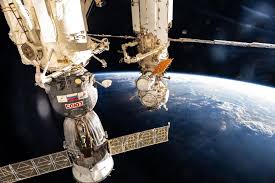
Introduction to the International Space Station
The International Space Station (ISS) represents one of the most significant achievements in human space exploration. This multi-national project, involving space agencies from the United States, Russia, Europe, Japan, and Canada, serves not only as a home for astronauts but also as a leading platform for scientific research. Its importance lies in its ability to conduct experiments in a microgravity environment, which can lead to breakthroughs in fields such as medicine, physics, and environmental science.
Recent Developments and Events
As of late 2023, the ISS continues to play a pivotal role in advancing our understanding of life and technology in space. Recently, NASA reported a series of successful experiments aimed at investigating the effects of microgravity on the human body. Some of these include studies on muscle atrophy and bone density loss, which have important implications for long-term space travel, for instance, the upcoming missions to Mars.
Furthermore, international collaborations on the ISS have intensified, with new modules and technologies being integrated into the station. A recent addition is the European Space Agency’s Columbus research facility, which was updated to enhance experimental capabilities for diverse research projects. Future missions are planned to expand both the functionality of the ISS and the international partnerships that sustain its operations.
Future Prospects and Significance
The future of the ISS is currently a hot topic of debate among space agencies and researchers. While the station has been operational since 1998, discussions regarding its continued use or decommissioning have arisen. NASA has indicated plans to support the ISS until at least 2028, with considerations for commercial partnerships to maintain its operations beyond that date.
The significance of the ISS extends beyond its scientific contributions; it also serves as a symbol of international cooperation. The collaborative efforts between nations in this project exemplify a shared commitment to explore and understand our universe.
Conclusion
The International Space Station remains an unparalleled resource for science and cooperation on a global scale. As we look towards an era of increased space exploration, the research conducted aboard the ISS will no doubt lay the groundwork for future missions and inspire generations to come. With the potential for further advancements and international partnerships, the legacy of the ISS is poised to have lasting impacts on human knowledge and exploration.
You may also like

The Importance of Rain Radar in Modern Weather Forecasting

Understanding the Recent Reddit Down Outage and Its Impact

SEARCH
LAST NEWS
- Remembering Wendy Richard: The Promise to Co-Star Natalie Cassidy
- How Did Anglian Water Achieve an ‘Essentials’ Rating for Mental Health Accessibility?
- Shai Hope Leads West Indies in T20 World Cup Clash Against South Africa
- What We Know About Weston McKennie: Future at Juventus and Past at Leeds
- What We Know About the Upcoming Live Nation Antitrust Trial